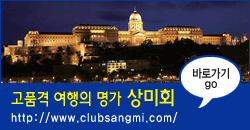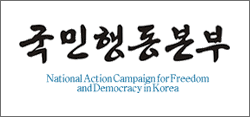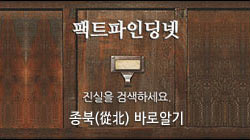|
|
|
(English version is below.)
이곳 칸차나부리가 유명해진 건 ‘콰이강의 다리’ 때문이고, 콰이강의 다리가 유명해진 건 그 영화 때문이다. 그래서 이곳을 찾는 상당수 한국인 관광객도 영화에서 본 바로 그 콰이강의 다리에서 기념사진을 찍고 돌아간다. 바로 옆에는 당시 일본군이 운영했던 유엔군 포로수용소의 참상(慘狀)을 재현(再現)해 놓은 ‘제쓰전쟁 박물관’도 있고, 조금 더 내려가면 ‘유엔군 묘지’와 ‘죽음의 철도 박물관’도 있지만 별 관심이 없는 것 같다. 간혹 한국 관광객을 태운 미니 밴(봉고차)이 유엔군 묘지 앞에 서 있는 걸 본다. 역시 사진 몇 장 찍고 바로 떠난다. 그럼 외국인들 특히 서구인들은 어떤가. 물론 그들도 사진을 찍지만, 대부분은 묘지 앞의 묘비명을 읽는 데 더 많은 시간을 할애한다. 왜 이런 차이가 날까? 국가관? 역사관? 암튼, 나에게 이런 관찰이 가능한 건 세계인들의 생각과 행동에 대한 호기심 때문이다.
물론 나에겐 ‘타이-버마 철도 센터’(죽음의 철도 박물관)도 빼놓을 수 없는 곳이다. 제쓰전쟁 박물관에서는 볼 수 없는 역사자료들이 많을 뿐 아니라, 전쟁 중 생포(生捕)되어 포로수용소에 갇혀 있을 때의 가혹한 탄압과 강제노동에 대한 아주 구체적이고 실감 나는 사진 자료들과 기록문들이 많이 전시돼 있기 때문이다. 이곳의 사진 자료를 보면, 폴란드의 아우슈비츠에서 본 처절(悽絕)한 모습의 유대인과 오버랩되기도 한다. 나라가 망하거나 전쟁에서 패하면 이렇게 된다는 것을 실감하는 곳이다. 이곳은 철도 역사 전문가인 호주인 로드 비티(Rod Beattie)가 개인 자금으로 설립하고 운영한다. 그래서인지 호주인과 영미(英美)인들이 단체로 오는 걸 많이 봤다.
특히, 나에게 인상적이었던 장면은, 이들은 어린 자녀들까지 데리고 와서 전문 가이드의 설명을 진지하게 듣는다는 것. 곳곳에 전시된 당시의 참혹(慘酷)할 정도의 피골(皮骨)이 앙상한 유엔군 포로들의 사진 앞에서는 침묵했다. 분노의 침묵 같았다. 그리고 곧 이들은 자기 자녀들에게 뭔가를 설명했다. 이 같은 부모(父母)들의 적극적이면서도 경견(敬虔)한 모습을 볼 땐 그들이 부러울 뿐만 아니라 존경심도 느꼈다. 이와 비슷한 경험이 많다. 일례(一例)로, 30년 전 튀니스의 국립박물관에서다. 그곳의 중앙홀엔 카르타고의 대형 해도(海圖)가 있었다. 독일인 부부가 자녀들에게 해상도(海上道)에 대해서 꼼꼼히 설명해는 주는 장면 등. (참고: 약 3000년 전의 해상도라고는 믿기 어려울 정도로 투명하고 정밀했다.) . 저들의 모습을 볼 때마다 나는 생각했다. 저들은 절대 치욕스러운 역사를 반복하지 않는다고. 나는 실례가 되지 않는 한 그들에게 다가가 대화를 한다. 배울 것이 한둘이 아니다. 어떤 분들은 내가 한국에서 왔다고 소개를 하면 좀 의외라는 표정(表情)으로 되묻는다. 이곳과 무슨 관련이 있느냐고. 그럴 만하다. 왜냐면, 이들이 아는 당시(當時)의 태평양(太平洋) 전쟁의 주범(主犯)은 일본(日本)이기 때문이다. 그래서 이 전쟁에는 일본이라는 국명(國名)과 일본군(日本軍)이라는 말만 나오지 한국 혹은 한국군(韓國軍)이라는 말은 들어 본 적도 읽어 본 적도 없기 때문이다. 실제로 그땐 한국(Korea)은 존재(存在)하지 않았으니까. . 이곳 ‘죽음의 철도 박물관’에서 있었던 이야기다. 참으로 가슴이 아픈 얘기다. 역사의식(歷史意識)이 희박(稀薄)한 한국인의 업보(業報)가 아닌가 싶다만. 내용(內容)은 이렇다. 이 박물관에는 서구인(西歐人) 관광객들로 붐볐다. 이들 가운데 현지인 가이드를 동반한 서구인 관광팀(5~6명)이 있었다. 나는 이들과 같은 전시실(展示室)에 있었다. 가이드의 설명이 진지했다. 내 귀에도 들렸다. 일종의 귀동냥을 하고 있는데 이때 그 가이드의 설명이 내 정신(精神)을 번쩍 들게 했다(“Japanese and Koreans were whipping and whipping so hard and 59 prisoners were killed.”). 즉, 일본인과 한국인들의 무자비(無慈悲)한 매질로 철도공사(鐵道工事)에 투입(投入)된 연합군 포로들이 59명이나 죽었다는 것이다. . 가이드의 설명을 심각하게 듣고 있던 서구인 여성(女性) 한 명이 약간 거리를 두고 있는 나를 쳐다보다 내 눈과 마주쳤다. 경계심이 곁들인 미심쩍은 미소(媚笑)를 보였다. 마치 나를 가이드가 말하는 무자비한 일본인이거나 한국인으로 생각하며 경멸(輕蔑)찬 눈으로 보는 것 같았다. 그럴 수 있다. 이해를 못 할 바는 아니다. 그렇다고 가만히 있을 수도 없는 일. 사실규명(史實糾明)을 하고 싶었다. 가이드 설명이 다 끝나고 관광객들이 전시물(展示物)을 구경할 때, 난 잠깐 짬을 이용해 가이드에게 다가가 말했다. 그런데 이 양반 나를 보자마자, “You Japanese?”라며 물었다. 내가 한국인(韓國人)이라고 하자, 이 가이드는 뭔가 새로운 것을 발견한 양, 관광객에게 나를 가리키며 바로 말했다. “He is Korean.” 나는 졸지(猝地)에 주변의 여러 서구인들의 썩 좋지 않은 눈총 세례(洗禮)를 받았다. 긴장(緊張)의 순간이었다.
*가이드와 대화 . 나: 실례합니다. 나는 한국에서 왔어요. 우연히 당신의 설명을 들었는데, 당신은 한국인과 일본인이 불쌍한 포로를 채찍질하여 59명을 죽였다고 했어요. 그건 사실이 아니지요. 그 당시엔 한국이란 나라가 없었기에 한국인도 없었던 겁니다. 아시다시피 모두의 국적은 일본이었지요. 조선은 일본에 병합됐으니까요. 대한민국 즉 한국인이 탄생한 건 1948년 8월 15일의 건국과 함께였습니다. 그 점은 잘 알고 계실 것 같은데요.
그: 물론 그 점은 나도 잘 알고 있습니다. 하지만 가이드로서, 쉽게 설명하다 보면 그럴 때가 있습니다. 그러나 한편, 어떤 자료에서는 한국인(조선인)들이 죽음의 철도 건설에 경비원으로 참여했다거나 혹은 일본인들이 약 2000명의 건장한 조선인 젊은이들을 고용해 경비원으로 썼다는 기록도 있는 건 사실이에요.
나: 그래요? 그렇다면 사실 확인이 필요하겠군요. 확실한 건 전후(戰後) 유엔의 판단이지요. 그 기록엔 조선 청년 3백여 명이 강제로 경비를 맡았다 해요. 또 23명의 조선인이 일본 전범의 이름으로 사형을 선고받았다고 합니다. 그러므로, 태평양 전쟁 중 조선인이라는 말은 있었지만 한국인이라는 말은 없었습니다. 그러므로 앞으로는 전쟁포로들을 무자비하게 채찍질해 죽였다는 설명에서 한국인이란 말을 안 썼으며 합니다.
그: 잘 알겠습니다. 내가 일부러 한국인들에게 상처를 줄 의도로 한 말은 아니었습니다. 오늘날 한국인들은 일본의 식민지배를 받던 조선인과 다르다고 덧붙이겠습니다.
나: 내 말을 이해해줘서 고맙습니다.
다행히 이 가이드는 내 말을 다 들어 주었다. 그리고 대체로 나의 말에 동의(同意)했다. 이때 마침 다른 두 명의 가이드가 우리에게 다가왔다. 한 명은 태국인(泰國人)이고 또 다른 한 명은 호주인(濠洲人)이었다. 이들은 나와 얘기를 나누고 있던 가이드와 잘 아는 사이였다. 나와 이야기를 하던 가이드가 두 명의 가이드에게 그동안 나와 나눴던 이야기를 전했다. 그리고 두 가이드도 내 말에 동의한다는 뜻으로 고개를 끄덕이며 급히 전시장(展示室) 안으로 들어갔다.
나에게 있어 오늘은 매우 의미(意味) 있는 날이었다. 다시 한번 국가(國家)의 중요성(重要性)을 깨닫는다. 자주국방(自主國防)과 더불어 부강(富強)한 대한민국, 강성대국(强性大國)을 만들어야 한다. 다시는 이런 비참(悲慘)하고 수치스러운 역사(歷史)를 우리 후손(後孫)들에게 물려주어선 안 된다. 자유는 공짜가 아님을 뼈저리게 느낀다. . 감사합니다. (성공한 대한민국의 여권파워 덕택입니다.) . ------------------ . People met on my backpacking132 – At the Death-Rail Museum . The reason why Kanchanaburi here became famous is because of "The Bridge of the Kwai River," the bridge of the Kwai River became famous is the same reason. All came from the movie. Many Korean tourists also take commemorative photos on the bridge of the Kwai River, which they saw in the movie. That's all. They don't seem to interest in other places such as the JEATH War Museum, which reproduces the horrors of the U.N. POW camp operated by the Japanese military at the time, and the U.N. Military Cemetery and Death Railway Museum a little further down. Sometimes I see a mini van carrying Korean tourists standing in front of the U.N. military cemetery. As expected, they take some pictures and leave right away. It's some what different from foreigners, especially Westerners who visited there. Of course, they also take pictures, but most spend more time reading the tombstone in front of the cemetery. Why is there such a difference? National view? Historical view? Anyway, I'm enjoying this observation because of my curiosity about the thoughts and actions of people from all walks of life. . Of course, it is a must-visit place for me to visit the "Thai-Burma Railway Center" (Death Railway Museum). Because there are many historical materials that can't be found in the JEATH War Museum. I mean there are many specific and realistic photographic materials and records on the harsh suppression and forced labor when they were captured and imprisoned during the war. It also overlaps with the desperate Jews I saw in Auschwitz, Poland. Remember that any country becomes so miserable if it goes down or loses a war. It‘s founded and operated by Australian Rod Beattie, a railway history expert, with private funds. Maybe that's why he has a lot of Australians and Anglo-Americans coming as a group tour. . Particularly impressive to me was that they even brought their young children and listened seriously to the professional guide's explanation. They were silent in front of pictures of the then horrific U.N. prisoners on display everywhere. It was like a silence of anger. And soon they explained something to their children. Seeing these active and respectful parents, I felt not only envious but also respectful of them. I have a lot of similar experiences. For example, 30 years ago at the National Museum in Tunis. There was a large chart of Carthage in its main hall. The scene where a German couple explains the sea map to their children in detail. (Note: The sea map, which was made about 3,000 years ago, was incredibly precise.) . Every time I saw them, I thought they would never repeat shameful history. I try to talk to them unless it's rude. Because there is a lot to learn. Some people asked back with a look of surprise when I introduced them that I was from Seoul, Korea. What does Koreans have to do with this place? Because Japan is the main culprit of the Pacific War at that time. In this war, only the words "Japan" and "Japanese military" are mentioned, but they have never heard or read the words "Korea or Korean military." In fact, Korea didn't exist at that time. . Today's story is from the 'Museum of the Railway of Death'. It's a heartbreaking story indeed. I think it's a kind of karma for Koreans who have little historical consciousness. The museum was crowded with Western tourists. Among them, there was a Western tourist team (5 to 6 people) accompanied by a local guide. I was in the same exhibition room with them. The guide's explanation was serious. I could hear him too. At the moment, the guide's explanation brought me to my senses. . “Japanese and Koreans were whipping and whipping so hard and 59 prisoners were killed.” . In other words, he said that 59 Allied prisoners who were put into the railroad work were killed by merciless beatings by the Japanese and Koreans. . A Western woman who was listening to the guide's explanation seriously met my eyes while looking at me. It was like a questionable smile with vigilance. She seemed to think of me as a ruthless Japanese or Korean as the guide said. I thought it was possible. But I wanted to tell them the truth. After the guide's explanation, it was time for tourists to see the exhibits. At this time, I approached the guide for a moment and said. But as soon as he saw me, he asked, "You Japanese?" When I said I was a Korean, then the guide called his tourists and immediately said, as if he had found something new. "He is Korean." I suddenly caught the eyes of many Westerners around me. Their eyes were not very good. I felt a little nervous. . *Conversation with guide . Me: Excuse me. I am from Korea. I overheard your explanation, and you said Koreans and Japanese whipped poor prisoners and killed 59 people. That's not true. At that time, there were no Koreans because there was no country called Korea. As you know, everyone's nationality was Japan. Because Joseon was annexed by Japan. Korea, or Koreans, was born on August 15, 1948. I'm sure you're aware of that. . He: Of course I know that very well. But as a guide, there are times when I explain it to customers easily. However, it is true that some data showed that Koreans (Joseon people) participated in the construction of the Death Railway as security guards, or that the Japanese hired about 2,000 healthy young Koreans to use them as security guards. . Me: Really? Then we need to check the facts. What's certain is the postwar U.N. judgment. According to the records, about 300 young Joseon men were forced to take charge of security. In addition, 23 Koreans were sentenced to death in the name of Japanese war criminals. Therefore, during the Pacific War, there was a word for Koreans, but there was no word for Koreans. Therefore, in the future, I think you should exclude the word "Korean" from the explanation that the Japanese mercilessly whipped and killed prisoners of war. . He: I see. Actually, I didn't mean to hurt Koreans on purpose. And I will explain to my guests that Koreans today are different from Koreans under Japanese colonial rule. . Me: Thank you very much for understanding what I mean. .
Fortunately, this guide listened to everything I said. And he generally agreed with me. At this time, two other guides came to us. One was Thai and the other was Australian. They knew the guide who was talking to me well. The guide who was talking to me told the two guides what we had been talking about. And the two guides hurriedly entered the exhibition hall, nodding their heads to agree with me. . Today was a very rewarding day for me. Once again, I realize the importance of the state. We must create a prosperous Korea and a powerful nation along with self-defense. This miserable and shameful history should never be handed down to our descendants again. Freedom is a truth beyond time and space that is not free. . My world trip is thanks to the successful passport power of Korea.
. |












 bestkorea(회원)
bestkorea(회원)



















 트위터
트위터 페이스북
페이스북 미투데이
미투데이 요즘
요즘 네이버
네이버
































